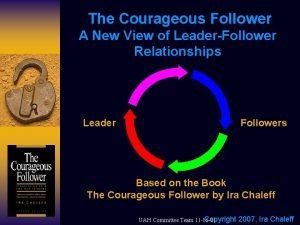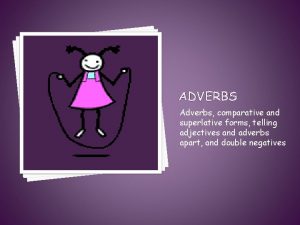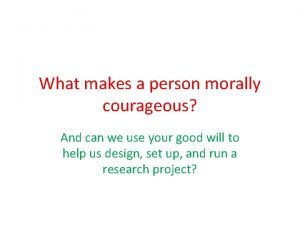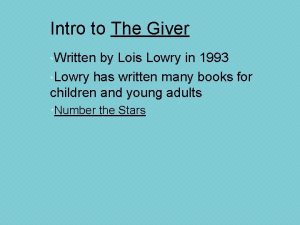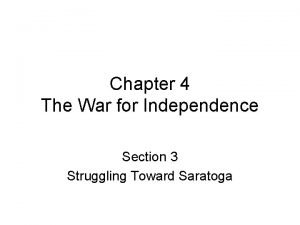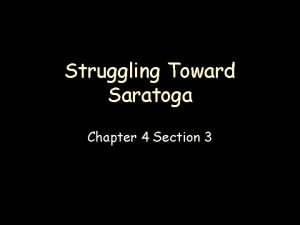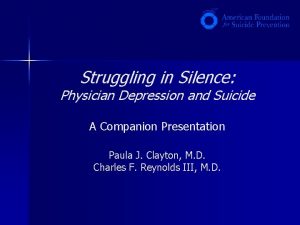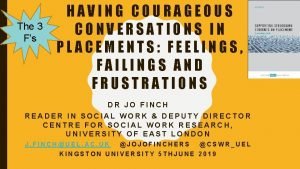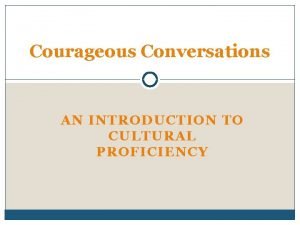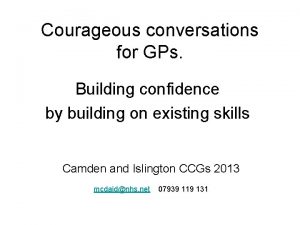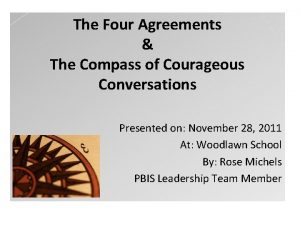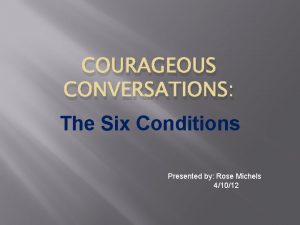Having Courageous Conversations with students struggling or failing















- Slides: 15

Having “Courageous Conversations” with students struggling or failing in practice learning settings. NELSWTP Conference July 2019 Dr Jo Finch Reader in Social Work Deputy Director – Centre for Social Work Research University of East London J. Finch@uel. ac. uk @jojofinchers @CSWR_UEL

Aims of the Workshop 1) To understand the emotional challenges practice educators, mentors and supervisors may face when working with struggling or failing students 2) To develop skills and confidence in having “courageous conversations” with social work students in practice learning settings 3) To consider the emotional process at play and their consequences

BUT FIRST!!!!!! Aims of the Workshop INTRODUCTIONS • • ME Social work educator for 15 years. Long standing research interest in all things practice learning with a focus on failure Currently writing about social work, PREVENT and radicalisation (with David Mc. Kendrick). Former C&F social worker, play therapist and practice educator. I am a Secret Viking!!! 1) To understand the emotional challenges practice educators may • face when working YOU or failing students with struggling • Name 2) To develop skills and confidence in having • • Where you work and role? “courageous conversations” with social work • • Any experience of workinglearning settings students in practice with a struggling or failing 3) Tostudents? consider the emotional process at play and consequences • Telltheir us a “secret” about yourself that no one else will know!

Limited (but growing International and Multidisciplinary research base about the emotional impact • Bogo at al (2007) – failing students causes value conflicts for practice educators. • Gizara and Forest (2004) – “I think that it’s an extremely emotional, gut-wrenching kind of experience…I don’t think it feels good on any level. ” • Basnett and Sheffield (2010) – experience of failing student a negative one • Schaub and Dalrymple (2013) practice educators reported feeling stressed, isolated and did not feel supported. • Finch (2010) found the experience caused range of challenging emotions

Limited (but growing International and • Practice educators felt under intense public and Multidisciplinary research base about the critical surveillance emotional impact • Felt threatened by students – possible implications • Bogo at al (2007) – failing students causes value if complaints made conflicts for practice educators. • Lack of support from university and tutors • • Gizara andfeelings Forest of (2004) – “I think that it’sto anfeeling Intense isolation contributing extremely emotional, gut-wrenching kind of overwhelmed with situation experience…I don’t think it feels good on any level. ” • Frustrated • Basnett and Sheffield (2010) – experience of failing student a negative one • Schaub and Dalrymple (2013) practice educators reported feeling stressed, isolated and did not feel supported. • Finch (2010) found the experience caused range of challenging emotions

Limited (but growing International and Multidisciplinary research base about the emotional impact SHAME GUILT ANGER • Bogo at al (2007) – failing students causes value conflicts for practice educators. • Gizara and Forest (2004) – “I think that it’s an extremely emotional, gut-wrenching kind of FRUSTRATION experience…I don’t think it feels good on any level. ” ANXIETY • Basnett and Sheffield (2010) – experience of failing student a negative one • STRESS Schaub and Dalrymple (2013) practice educators IMMOBILISATION reported feeling stressed, isolated and did not feel supported. • Finch (2010) found the experience caused range of challenging emotions

Courageous Conversations (Beddoe and Davys, 2016) • Or “saying it as it is”! (Jo Finch) • Conversations associated with some sort of emotion • Participants may feel ashamed, apprehensive, uncomfortable, angry & embarrassed • Conversations may be conflicted by introducing different ideas, values or behaviours • Conversations may cause conflict • Need to think about those obstacles in having such conversations

Role Play Time !!!!!!

Reflective Activity • What did you find difficult/challenging about the role plays • What range of emotions did you experience? • Why do you think these emotions emerged? • What did they tell you? • What new insights has the exercise revealed between you and the “student”? • Anything else?

Emotional Processes • Finch, Schaub and Dalrymple (2013) argued that practice educators were mobilised by persecutory projective processes… • …which immobilises thinking and reflection • Compound failure – ignored initial misgivings and then internalised students failures as their own (ibid). • Practice educators overwhelmed with students difficult of failure… • And involves unconsciously own experiences of failing – • Students previous failing issues may also be reawakened. •

Emotional Processes • Finch, Schaub and Dalrymple (2013) argued that practice educators were mobilised by persecutory projective processes… Which all can result in: 1) Not thinking following the correct procedures • …which immobilises and reflection 2) Burying head in sand hope it gets • Compound failurebetter – ignored initial misgivings and then on its own 3) Doing too much the student, i. e. internalised students failures asfor their own (ibid). rescuing them • Practice educators overwhelmed students difficult of 4) Not addressing the with concerns failure… explicitly or in a timely fashion 5) Feeling angry and hostile towards the • And involves unconsciously own experiences of failing – student or university • Students previous failing issues may also be reawakened. •

Emotional Processes • Finch, Schaub and Dalrymple (2013) Poor quality Failing to Fail the student assessment argued that practice educators were mobilised by reports which mean can not persecutory projective processes… uphold fail decision Which all can result in: 1) Not thinking following the correct procedures • …which immobilises and reflection 2) Burying head in sand hope it gets • Compound failurebetter – ignored initial misgivings and then on its own 3) Doing too much the student, i. e. internalised students failures asfor their own (ibid). rescuing them • Practice educators overwhelmed students difficult of 4) Not addressing the with concerns failure… explicitly or in a timely fashion 5) Feeling angry and hostile towards the process • And involves. Due unconsciously own experiences of failing – student or university not being Abruptly • Students previous failing issues may also be reawakened. carried out • (cant uphold decision) terminated placements

Learning Check • Write down three things you have learnt, thought about or reflected on during this session? • Write down three things you might now do differently as a practice educator as a result of this workshop • Any final thoughts or comments

Concluding Comments • Working with a struggling or failing student is an emotionally painful experience. • Student will be projecting difficult and challenging feelings onto you. • But I would encourage you to be reflective and consider these feelings as a form of communication. • Go forth and have “courageous conversations”

Bibliography • Basnett F. , and Sheffield D. , (2010) The Impact of Social Work Student Failure upon Practice Educators, British Journal of Social Work, 40, 2119 -2136 • Beddoe, L, & Davys, A. (2016) Challenges in Professional Supervision, Jessica Kingsley Publishers, London, • Bogo, M. , Regher, C. , Power, R. and Regher, G. (2007) When Values Collide: Field Instructors’ Experiences of Providing Feedback and Evaluating Competence. Journal of Social Work Education, 28 (2) pp. 178 -190 • Finch, J. (2010) Can’t Fail, Won’t Fail – Why Practice Assessors Find it Difficult to Fail Social Work Students. A Qualitative Study of Practice Assessors Experience of Assessing Marginal or Failing Social Work Students, University of Sussex, Professional Doctorate in Social Work Finch, J. and Poletti, I. (2013) ‘It’s been hell. ’ Italian and British Practice Educators’ Narratives of Working with Struggling or Failing Social Work Students in Practice Learning Settings, European Journal of Social Work, Vol 17 (1) pp: 135 -150 DOI: 10. 1080/13691457. 2013. 800026 Finch, J. and Taylor, I. (2013) The Emotional Experience of Assessing a Struggling or Failing Social Work Student in Practice Learning Settings, Special Edition – Field Education, Social Work Education, 32 (2) pp: 244 -258 DOI: 10. 1080/02615479. 2012. 720250 Finch, J. , Schaub, J. & Dalrymple, R. (2013) Projective Identification and the Fear of Failing: Making Sense of Practice Educators’ Emotional Experiences of Failing Social Work Students in Practice Learning Settings, Journal of Social Work Practice, Vol 28 (2), pp: 139 -154 • Finch, J. (2014) “Running with the Fox and Hunting with the Hounds: ” Social Work Tutors‘ Experiences of Managing Students Failing in Practice Learning Settings, British Journal of Social Work, volume 45 (7) pp 2124 -2141 • Finch, J. (2016) “…it’s just very hard to fail a student…” Decision making and defences against anxiety – an ethnographic and practice-near study of practice assessment panels. Journal of Social Work Practice doi: 10. 1080/02650533. 2016. 1158156. • Gizara, S. S. and Forrest, L. (2004) Supervisors' Experiences of Trainee Impairment and Incompetence at APA-Accredited Internship Sites. Professional Psychology: Research and Practice, 35 (2), pp. 131 -140 • Schaub, J. & Dalrymple, R. , (2011). “She didn’t seem like a social worker”: Practice Educators’ Experiences and Perceptions of Assessing Failing Social Work Students on Placement. http: //www. swapbox. ac. uk/1151/. (accessed 1/12/12) • Schaub, J. and Dalrymple, R. (2013) Surveillance and silence: new considerations in assessing difficult social work placements, Journal of Practice teaching and Learning, vol 11 (3) pp 79 -97
 Antiracist teaching
Antiracist teaching 5 dimensions of courageous followership
5 dimensions of courageous followership Onomatopoeia roar
Onomatopoeia roar Courageous advocacy powerpoint
Courageous advocacy powerpoint Courageous comparative and superlative
Courageous comparative and superlative Morally courageous person
Morally courageous person Joshua
Joshua Careful degrees of comparison
Careful degrees of comparison How many syllables in courageous
How many syllables in courageous Strong and courageous book
Strong and courageous book Written by
Written by Chapter 4 section 3 struggling toward saratoga
Chapter 4 section 3 struggling toward saratoga The outsiders adapted for struggling readers
The outsiders adapted for struggling readers Struggling toward saratoga section 3
Struggling toward saratoga section 3 Struggling in silence
Struggling in silence Remediation of the struggling medical learner
Remediation of the struggling medical learner

